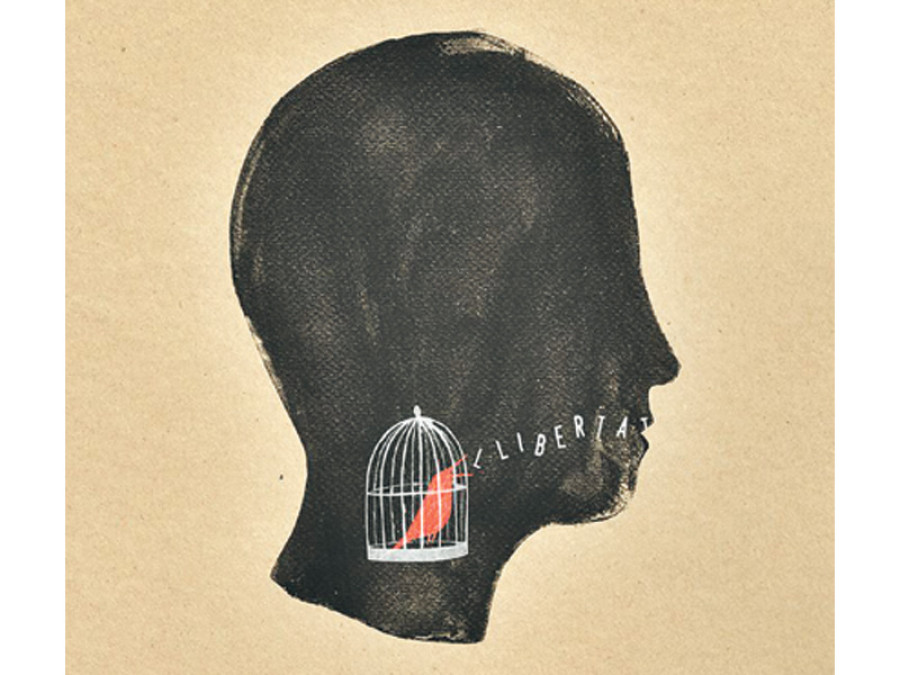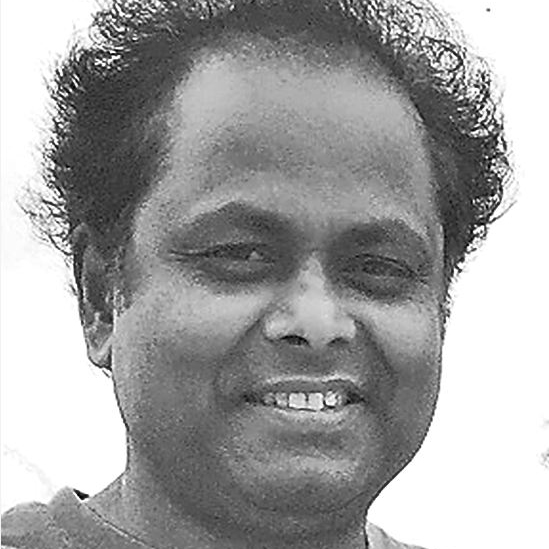Opinion
A fool’s paradise
Discord awaits us if the educated public miss the big picture and voice personal prejudices as arguments
Pramod Mishra
Robert Penner’s recent expulsion from Nepal coming on the heels of PM Oli scolding the National Human Rights Commission (NHRC) and its spokesperson Mohna Ansari and the arrest of journalist and media entrepreneur Kanak Mani Dixit is not surprising in itself. The Nepali state, despite now being a secular, democratic republic, is going through the pangs of transformation, from the feudal culture of the rulers and the ruling class directing their one-way discourse and dictating their terms to the populace without expecting a response in return to a time when they have begun to be talked back, challenged and resisted. Not used to be accountable for their speech or actions, they find it outrageous that someone challenged them.
But the world has begun demanding accountability for both speech and action. And the state does what it knows best—swing into action by chiding, arresting and expelling those who demand explanation or insist on telling the truth. What is interesting is how the educated classes have responded to these three events. While the NHRC and Ansari received widespread support in regular as well as social media, the cases of Dixit and Penner elicited polarised responses because they both had pissed off many.
A decade of republicanism
While Dixit, a high profile Kathmandu elite, after his initial reluctance, opposed autocracy, wrote against the Maoists relentlessly, blamed India for the seven-month blockade, even supported the Nepali state’s highhandedness in dealing with Madhesi Morcha’s protests and has consistently been against identity-inclusive federalism, presenting liberal democracy as a panacea for Nepal’s history of marginalisation, Penner, a philosophy major and an expert in software development, went after some prominent figures, analysing and fact-checking their public statements on Twitter and calling them out on their falsehood and biases. And, when these public figures—an editor, a head of a well-known human-rights organisation, journalists—either refused to elaborate or obfuscated, Penner with his razor-sharp mind, debunked and exposed their weak and unsustainable statements. One of them had even in December tweeted, “An expat so engrossed in local politics. GoN should examine depth. @bishnurimal @PMO_Nepal @NepalPoliceHQ.” This was after Penner had insisted in his tweets that the above “debunked accusers of @HRW still must retract/apologise.”
When Dixit got arrested, you could see the moment of schadenfreude on social media. Some blamed him for being thula-bada (big shot), liable to get away with wrongdoing; others rejoiced at his arrest because he had opposed identity-inclusive federalism or had gone after the Maoists in his direct write-ups and through his media organisation. In focusing on their group or personal trees of grudges and grievances, these detractors forgot the forest of the old Nepali state’s refusal to go away or give in even after almost a decade of republicanism.
While the people Penner angered directly were not as many as those Dixit had antagonised, the few he did have written quite interesting op-eds after his expulsion. One calls him “Mr Troll”; another blames him for igniting and accelerating violence in the Madhes. Both blame him for siding with the Madhes, thus creating a broader social divide among Nepalis. These are big accusations. For lack of space and Nepali media protocol, one cannot name these well-educated op-ed writers and dissect (or Penner?) their op-eds for veracity, unfounded assumptions, non-sequiturs, lack of evidence and clever insinuations in a manner that academics do to sort out an issue in a detailed and substantiated manner.
A smear campaign
But because I have known Penner since the controversy over the Human Rights Watch (HRW) report erupted in October last year at the height of the Madhes Movement, and watched closely his engagement with the editor of a major English newspaper of Nepal, I think I should say a thing or two on this matter. So far, I have not seen either myself or in the op-eds that have come out attacking him a single tweet or a Facebook post or a statement of any other kind by Penner that would smack of abuse, obscenity or angry tirades. While he had sometimes been insistent on the pursuit of an explanation, he has never been abusive. He has always been calm but persistent. I am willing to be proven otherwise.
When an editor of a major daily or the head of a major human-rights organisation tweets about the HRW report about the killings and abuses in the Madhes as “one of the most biased human-rights reports I have ever read,” shouldn’t that public figure, a shaper of public opinion, be asked to elaborate with specifics? And if the person refuses, shouldn’t they be called out until they explain what they mean by it or rectify the error? Arguments and exchange of views are a healthy sign even among ordinary people but an editor, a journalist or an influential human-rights chief cannot just say something publicly that would degrade the credibility of an international human-rights report on mayhem and murder of a marginalised ethnicity by an oppressive state and refuse to engage in further discussion about it. People ought to know that such irresponsible public statements are just that—a smear campaign by the beneficiaries of state privilege against a marginalised community under state violence. The habit of the old Nepali ruling class of one-way pronouncements can no longer stand unchallenged. The sooner this realisation hits home, the better it is for public discourse.
Hope and despair
As for the social divide, these writers live in a fool’s paradise if they think that Penner exacerbated it and that Nepal was a harmonious place before Penner. From a reading of Penner’s tweets, I can, and you can too, if you take time to research, clearly say that he had not sided blindly with everything the Morcha or Madhesis had done. He had opposed their violence and falsehood more than once. And he had opposed the blockade, too. The following is just one example: “Comparing Nepali Police to ISIS is going too far. But I condemn their murdering & also Madhesi Morcha’s” (26 Nov 2015).
Finally, I must say that all the three cases give us both hope and despair: Hope because some even nascent institutions of the republican Nepali state can act as an antidote to some other delinquent ones, as the NHRC and the Supreme Court have done to the prime minister and the CIAA respectively; despair because if the educated public, especially those educated abroad, caught up in their personal grudges and class, ethnic and national arrogance, cannot see the big picture and voice personal prejudices and complexes as arguments, what is the use of talking about social harmony? Only discord awaits us in the future.




 6.12°C Kathmandu
6.12°C Kathmandu










